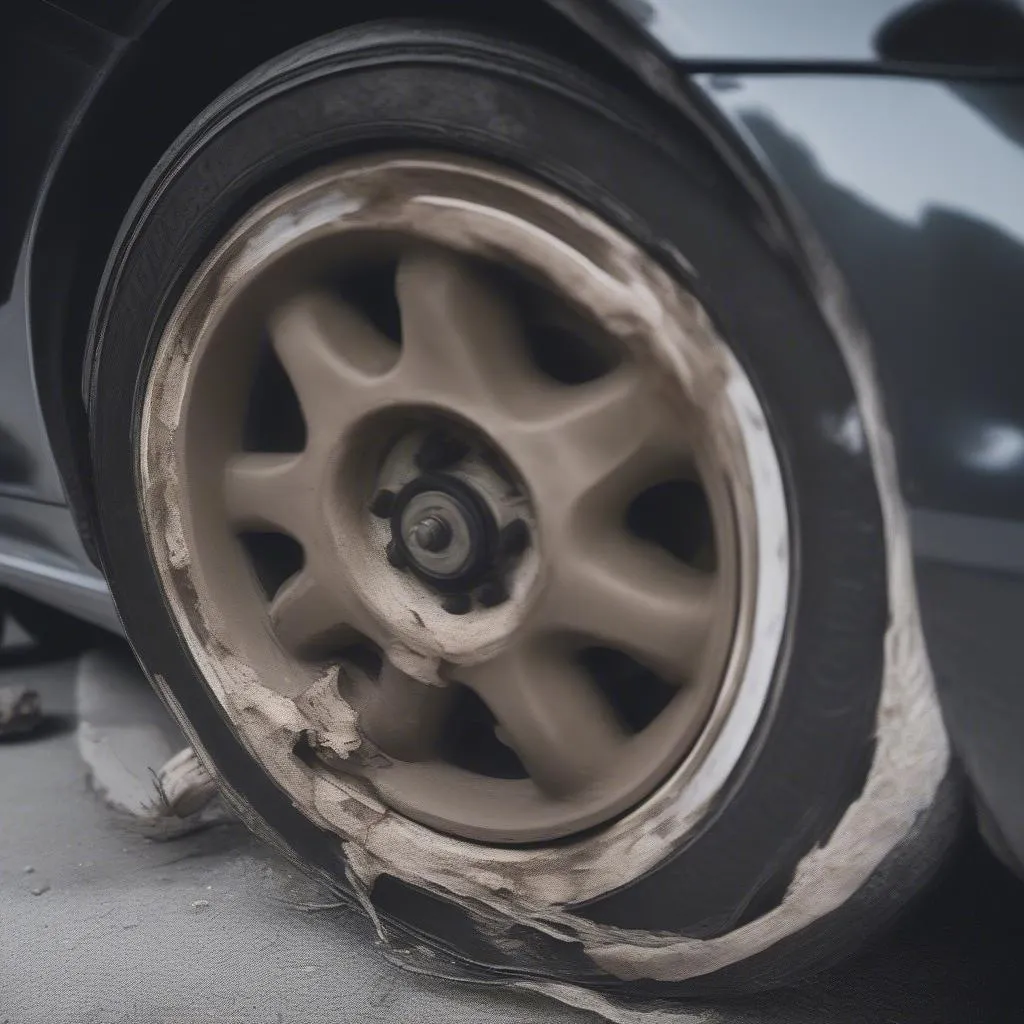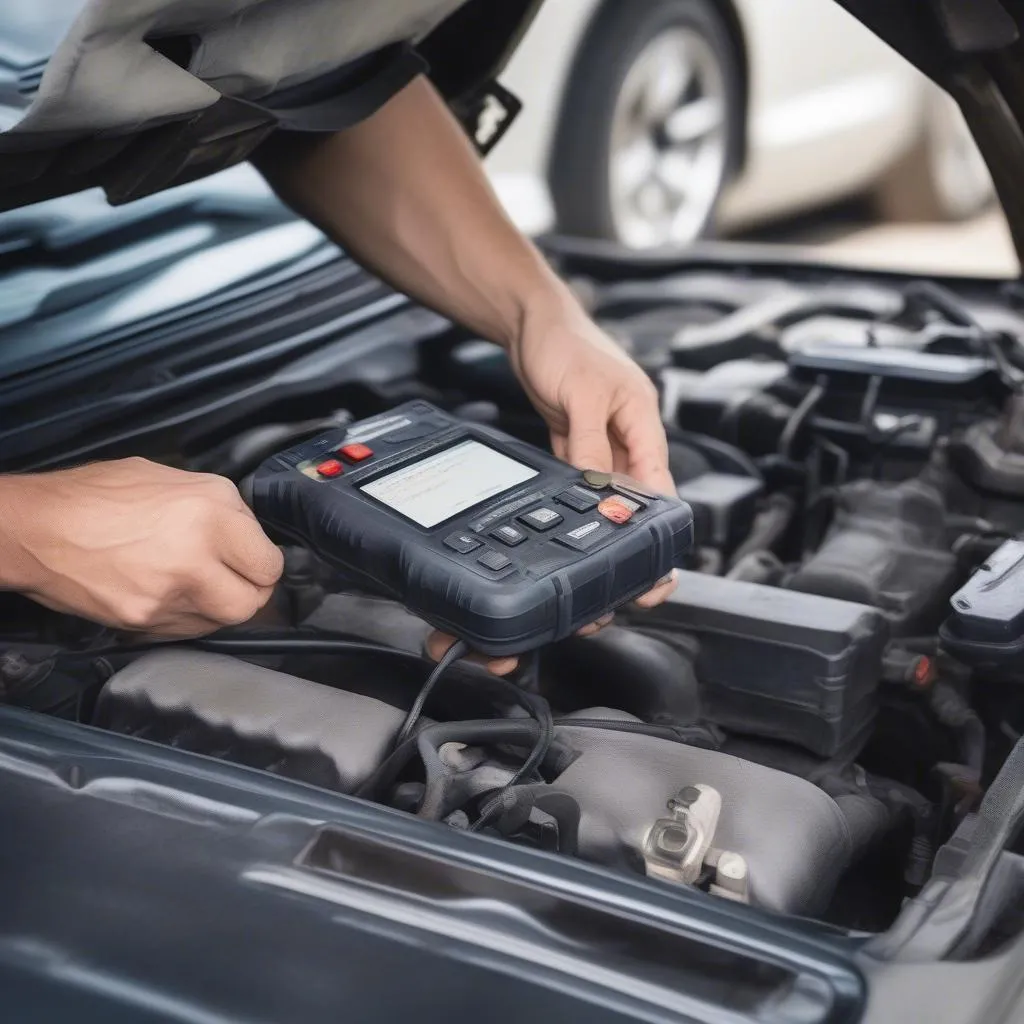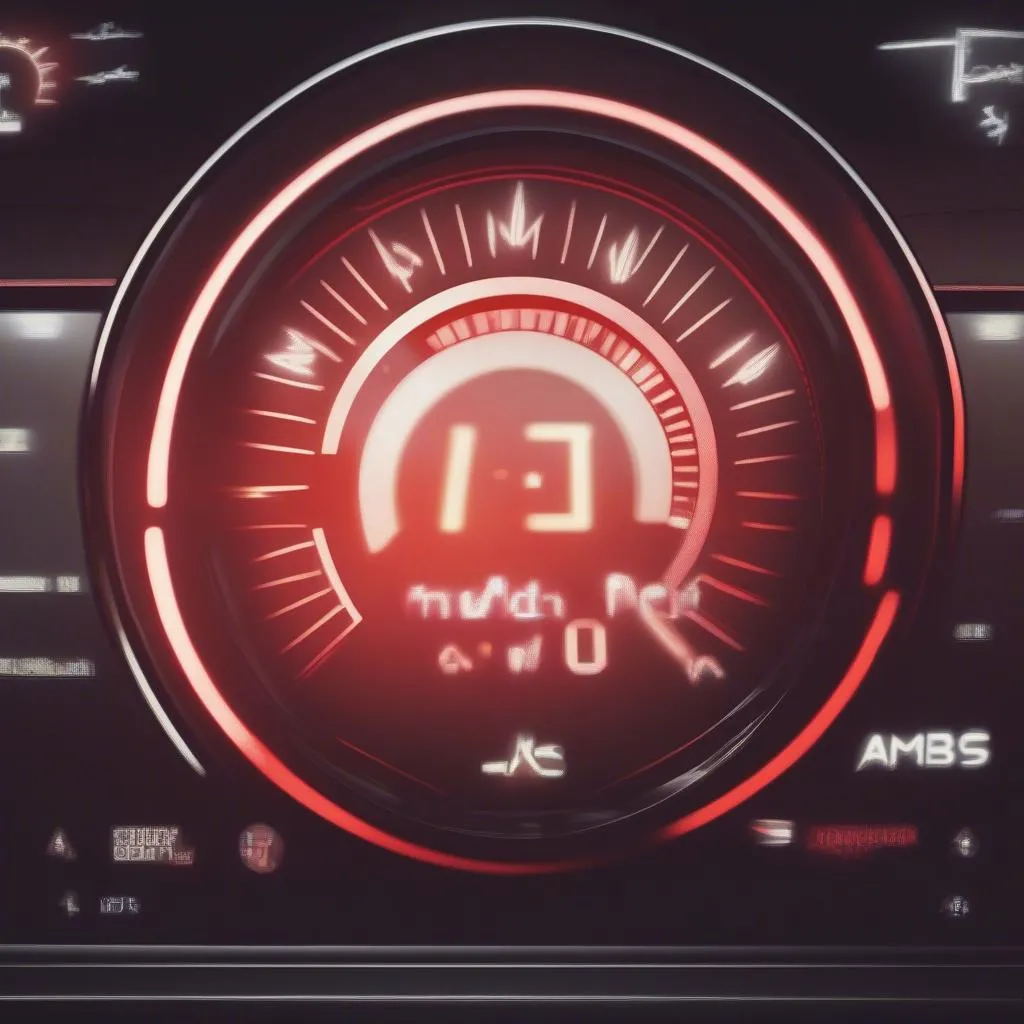Have you ever wondered what “flashing ABS” means? It’s a common question among car owners, and it can be a little confusing if you don’t know much about your car’s electronics. In this article, we’ll explore the meaning of flashing ABS, explain why it happens, and provide you with the information you need to know to address the issue.
What Does Flashing ABS Mean?
From a Mechanic’s Perspective
When your car’s ABS light starts flashing, it means that the Anti-lock Braking System (ABS) is experiencing a malfunction. This malfunction could range from a minor issue like a faulty sensor to a more serious problem like a damaged control module.
From a Technical Perspective
The ABS system uses sensors to monitor wheel speed. When a wheel locks up during braking, the ABS system uses these sensors to activate the hydraulic brakes, preventing the wheels from locking up. This allows you to maintain steering control during an emergency braking situation.
From an Economic Perspective
ABS malfunctions can lead to costly repairs, depending on the nature of the problem. If your ABS light starts flashing, it’s important to have your car checked by a mechanic as soon as possible. Ignoring the issue could result in a more serious problem down the road, potentially leading to a loss of control during braking.
Why is My ABS Light Flashing?
There are several reasons why your ABS light might be flashing. Here are some of the most common causes:
Faulty ABS Sensors
ABS sensors are located on each wheel and are responsible for monitoring wheel speed. If one or more of these sensors malfunction, the ABS system will not be able to function properly. This can lead to the ABS light flashing or even a complete ABS system failure.
Damaged ABS Control Module
The ABS control module is the “brain” of the ABS system. It receives information from the sensors and controls the braking system. If the control module is damaged, the ABS system will not be able to function properly.
Problems with the Hydraulic System
The hydraulic system is responsible for applying pressure to the brakes. If there is a leak or other problem with the hydraulic system, it can affect the performance of the ABS system.
Loose Wiring
Loose wiring connections can cause electrical problems that affect the ABS system.
Problems with the Electrical System
Electrical problems in other parts of the car, such as the battery or alternator, can also cause the ABS light to flash.
How to Fix a Flashing ABS Light
If your ABS light starts flashing, it’s important to take your car to a qualified mechanic for diagnosis and repair. The mechanic will use a diagnostic tool to identify the cause of the problem. Depending on the issue, repairs can range from simple to complex.
Frequently Asked Questions
Here are some of the most common questions we receive about flashing ABS lights:
Q: Is it safe to drive my car with a flashing ABS light?
A: It’s generally safe to drive your car with a flashing ABS light, but it’s important to have the problem diagnosed and repaired as soon as possible.
Q: How much does it cost to fix a flashing ABS light?
A: The cost of repairing a flashing ABS light can vary widely depending on the cause of the problem. Minor issues like a faulty sensor may only require a few hundred dollars to fix, while more serious problems like a damaged control module can cost thousands.
Q: Can I reset the ABS light myself?
A: While it’s possible to reset the ABS light yourself using a scanner, it’s not recommended unless you have the necessary knowledge and experience. Resetting the light without addressing the underlying problem will only hide the issue and could potentially lead to a more serious problem down the road.
Other Common ABS Problems
-
ABS Light On But Not Flashing: A steady ABS light might indicate a different problem than a flashing light. It could be an issue with a sensor, wiring, or the ABS module itself.
-
ABS Not Working: If your ABS is not working at all, you will not feel the ABS system engaging during braking. This can be a serious safety hazard, and it’s important to have your car inspected immediately.
-
ABS Warning Light and Other Lights On: If your ABS light is on along with other warning lights, such as the brake light or traction control light, it could indicate a more serious problem with your car’s braking system.
Related Articles:
- What Does ABS Mean in a Car? [https://diagxcar.com/abs-mean-in-a-car/]
- OBD2 and ABS Scan Tool [https://diagxcar.com/obd2-and-abs-scan-tool/]
- Mercedes ABS Warning Light [https://diagxcar.com/mercedes-abs-warning-light/]
- ABS Light Meaning [https://diagxcar.com/abs-light-meaning/]
- ABS Service Required [https://diagxcar.com/abs-service-required/]
 ABS Sensor Malfunction
ABS Sensor Malfunction
 ABS Control Module Repair
ABS Control Module Repair
 ABS Warning Light
ABS Warning Light